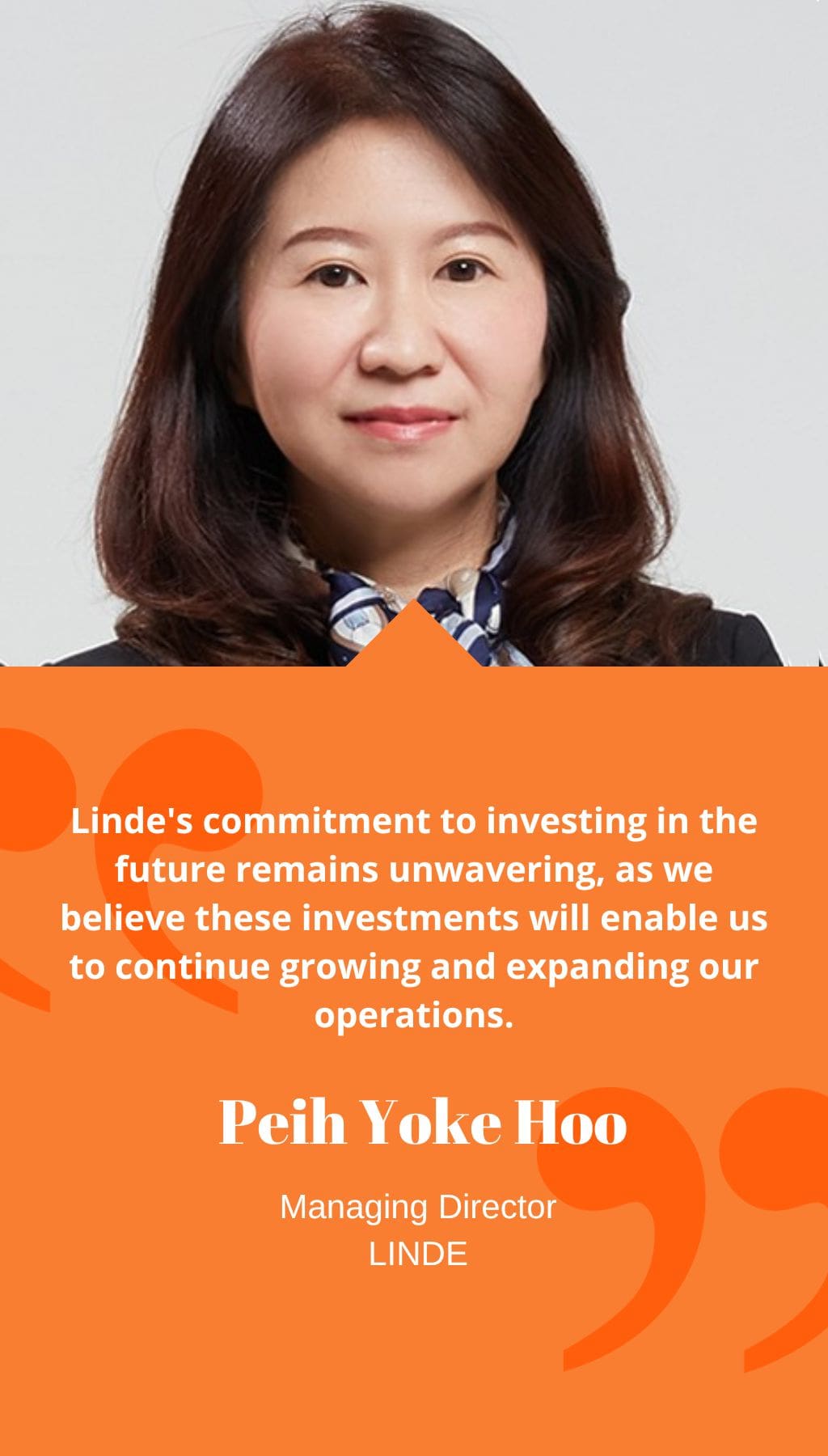
- Malaysia | 23 February 2023

Can you provide an overview of Linde Malaysia and its significant milestones in Malaysia?
Linde Malaysia has a rich history that traces back to its foundation company, Malayan Oxygen Limited, which was established in 1960. One of its notable achievements was the commissioning of the largest hydrogen plant in Pasir Gudang, Johor in 1977. In 1999, the company built the largest air separation unit in Bukit Raja, Selangor. In 2002, Malayan Oxygen acquired Nissan IOI and renamed it to MOX Gases Bhd (MOXG). In 2007, Linde acquired The BOC Group, making MOX a wholly owned subsidiary of Linde, and in 2012, the company rebranded as Linde Malaysia. Linde further expanded its presence by forming a joint venture with PETRONAS Gas Berhad, establishing Pengerang Gas Solution Sdn Bhd (PGS) in 2016. Notable milestones also include the commissioning of the first semi-automated cylinder refilling plant in Banting in 2017 and the merger between Praxair and Linde Group in 2019.
How has Linde maintained its market leadership?
Linde has earned a reputation as a highly reliable and globally respected gas company, which has contributed to its market leadership. Supply reliability is of utmost importance to our customers, as even a minute of downtime can result in significant financial losses. To meet market demand, Linde has consistently invested ahead and deployed assets strategically. Additionally, the company’s strong focus on safety has been instrumental in its success. Linde’s wide footprint with multiple plants in various locations and the largest fleet of trucks and tankers also provide a competitive advantage.
How do Linde’s global decarbonization efforts translate to Malaysia?
Linde has set a global target to achieve a 35% reduction in greenhouse gas (GHG) emissions by 2035. As a company with international operations, Linde faces pressure to meet global emissions targets. In Malaysia, Linde focuses on investing in solar rooftop projects to reduce Scope 2 emissions and actively participates in government renewable energy programs to ensure the company’s GHG goals are met within the proposed timeframe. Linde also prioritizes increasing energy efficiency at the site level through various measures to contribute to decarbonization efforts. The company is exploring the use of renewable energy certificates (RECs) or carbon credits as part of its commitment to sustainability. Linde’s expertise in hydrogen production, carbon capture and storage (CCS), and hydrogen-firing technology positions it to deliver integrated and optimized solutions for large cracker decarbonization applications.
Why haven’t renewables seen wider adoption in Malaysia?
The limited adoption of renewables in Malaysia can be attributed to several factors. Many customers and suppliers face challenges in accessing lower-carbon energy options due to limited applications. The uneven distribution and availability of clean power pose reliability issues for companies. This often leads to higher costs for accessing green energy or technologies to meet decarbonization targets. However, there are global customers who prioritize environmental consciousness and are keen on replacing natural gas with renewables, especially in the context of Linde Malaysia’s SMR (steam methane reforming) plant. These customers recognize that Linde’s carbon footprint is also their carbon footprint. Some companies are exploring mobility options and Linde can support them with hydrogen refueling. It requires a collective mindset among companies to embrace carbon reduction, facilitate access to clean energy, and promote different energy sources such as bio-mass, bio-gas, and hydro power to encourage a carbon-free agenda.
What are your main priorities for Linde Malaysia in 2023?
My main priority is to ensure that Linde maintains its position as the leading industrial gas player in Malaysia while delivering the highest quality service to our customers. Recently, we commissioned an air separation plant in 2021, and in 2022, we commissioned a nitrogen plant, both of which are currently in operation. Linde’s commitment to investing in the future remains unwavering, as we believe these investments will enable us to continue growing and expanding our operations.














